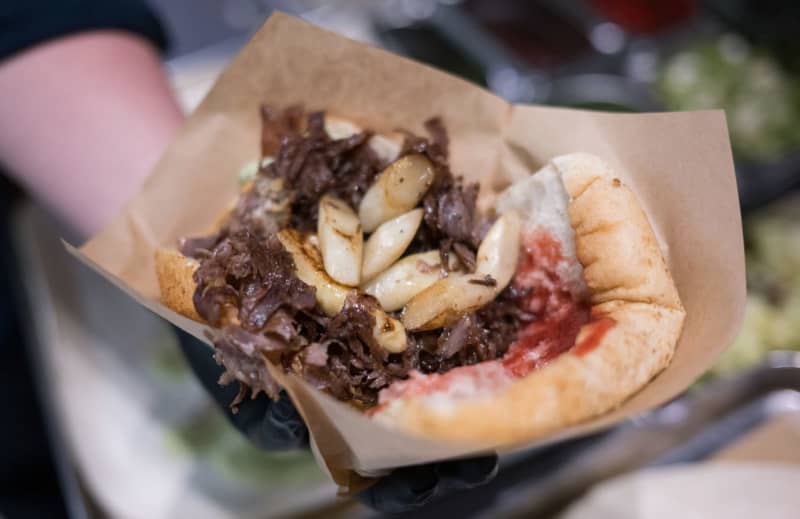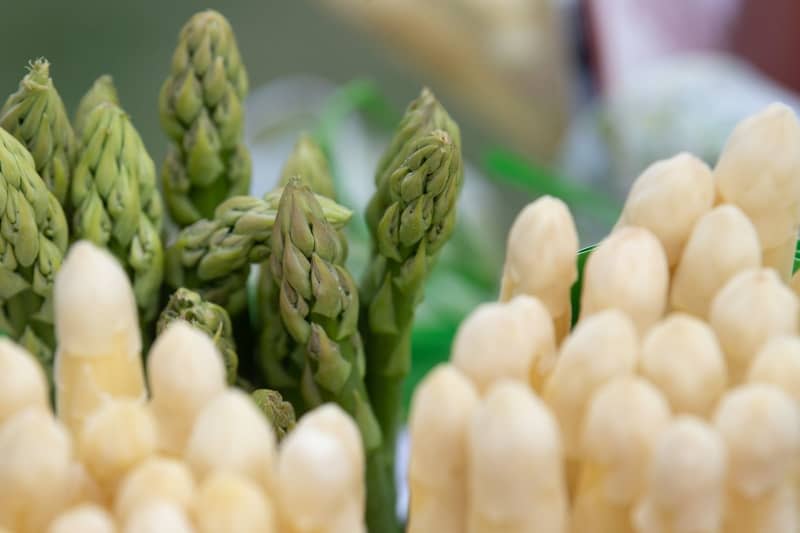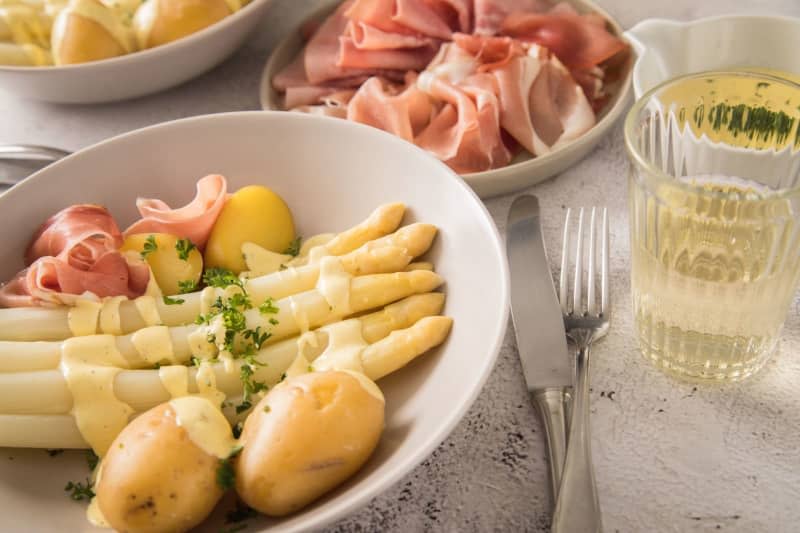'A crime against döners': Asparagus kebabs divide Germany

Detractors on social media have been condemning them as "dönerverbrechen" - crimes against döners. Others reluctantly admit that they actually taste pretty good.
In recent weeks, Germans have been debating what is probably the most controversial döner style of recent history.
A tribute to the only other vegetable as sacred to Germans as the potato, the asparagus döner is a distinctly German spin on the city's Turkish fast food culture.
Since the start of this year's asparagus season, a Berlin kebab shop has been selling the Spargeldöner Beelitzer Art ("Asparagus döner, Beelitz style"), named after the Beelitz region near Berlin, famed for its asparagus crop.
It's not the only kebab shop doing so, and others in Germany have also dared experiment with white asparagus - the superior variety according to most Germans.
In Berlin, the concoction is served by the Kebap with Attitude fast food spot in the city's central Mitte district.
Order it from the menu, and you'll get white asparagus with grilled beef, lamb's lettuce, hollandaise sauce, strawberry and ginger jam and wild garlic mayonnaise, all served up in the unfamiliar environment of crunchy döner flatbread.
All this is a far cry from the classic döner combination of meat, salad, cabbage, onions and a garlic or herb sauce. The German-style ingredients combine to form a rather juicy result - and tackling it requires a small stack of napkins.
It's not only the unusual ingredients, but also the steep price of just under €15 ($16) that has raised eyebrows. And yet Germany's biggest-selling tabloid Bild says the investment is definitely worth it.
"Surprisingly, the perfectly cooked asparagus [...] harmonises wonderfully with the tender beef and mayo," a Bild reporter writes. "For the experience of eating asparagus in a döner, it's worth it," comments local city magazine Tip.
Commentators on social media have responded to the trend with disgust ("a crime against döners") to curiosity ("I'd be up for it - a bit of hollandaise and off we go!") and even denial ("This has to be an April fool's joke").
Berlin's first asparagus döner appears to be more warmly welcomed by Germany's asparagus farmers: "It's good when people think about where else this healthy vegetable can be used," says Jürgen Schulze, head of the Association of Asparagus Growers.
'Not your typical Turkish restaurant'
The Berlin kebab shop's co-founder Deniz Buchholz says the menu is all about bringing together influences from German and Turkish culture.
"We're not your typical Turkish restaurant," says Buchholz, who founded the fast food spot in 2019 with his business partner Daniel Herbert. "We want to be a Berlin-style kebab restaurant and bring in the multicultural and contemporary."
But they're not alone in putting asparagus in a kebab. In southern Germany, Elif Gül has been selling her asparagus kebab in the Bavarian town of Abensberg for five years now.
However, she serves it in the more traditional style - with kebab meat, salad and cabbage. It comes with hollandaise sauce and "just a little onion so that the asparagus flavour is not covered."
Germany's Abensberg region is also a well-known asparagus region and the kebab goes down very well with people who like asparagus, says the owner of a local delicatessen. Elsewhere, like in the northern German town of Oldenburg, the asparagus döner has also made it onto the menu of local kebab shops.
Compared to the Berlin kebab, which costs a steep €14.90, the Bavarian version is almost a bargain at €9. Even under heavy inflation in Germany, prices for a döner in Berlin's most highly rated kebab spots have remained under €10. However some have pushed prices far higher, such as Berlin's posh Hotel Adlon, where an upper-class kebab in the lounge costs €37.
For the price of what four Berlin kebabs would cost at the Turkish fast food hotspot of Kottbusser Tor, at the Hotel Adlon you get fresh truffles and strips of veal loin.
Germany's 'white gold'
Experimentation with asparagus is a touchy subject in Germany, as few countries delight over this vegetable quite like this one.
In the weeks leading up to spring, when restaurants around the country start to serve this semi-sacred vegetable, German media will begin reporting forecasts on the coming asparagus crop.
Fans then posting pictures of their first asparagus - "white gold" or "edible ivory," as many call it - of the year on social media.
Every year the average German consumes about 1.7 kg of asparagus (mostly white - the green variety is less common in Germany), according to the Federal Agency for Agriculture and Food (BLE).
Germany's obsession with asparagus reaches its peak every year around April, when a so-called asparagus queen ("Spargelkönigin") is crowned, with the pageant winner often seen at the many asparagus festivals held from Berlin in the north to the Black Forest in the south. Appreciation of asparagus goes so far that it's sometimes even sold as an ice cream flavour in summertime.
"Not liking asparagus is definitely worse than not knowing the words to the national anthem," German news magazine Der Spiegel wrote in a hotly debated 2019 opinion piece questioning the German cult of asparagus.
The most prized dish on the menu of many restaurants in Germany come spring looks like this: white asparagus with a creamy hollandaise sauce with potatoes and sometimes meat.
It's typically paired with a Riesling or Grauburgunder white wine. But you'd be forgiven for washing down your asparagus döner with a cheap bottle of beer.



